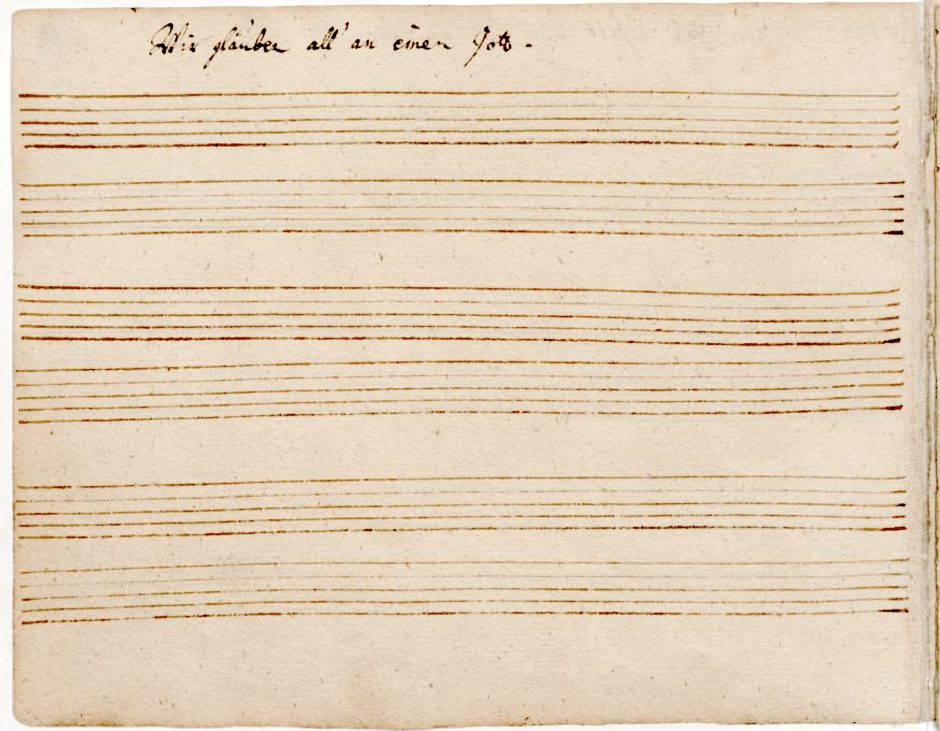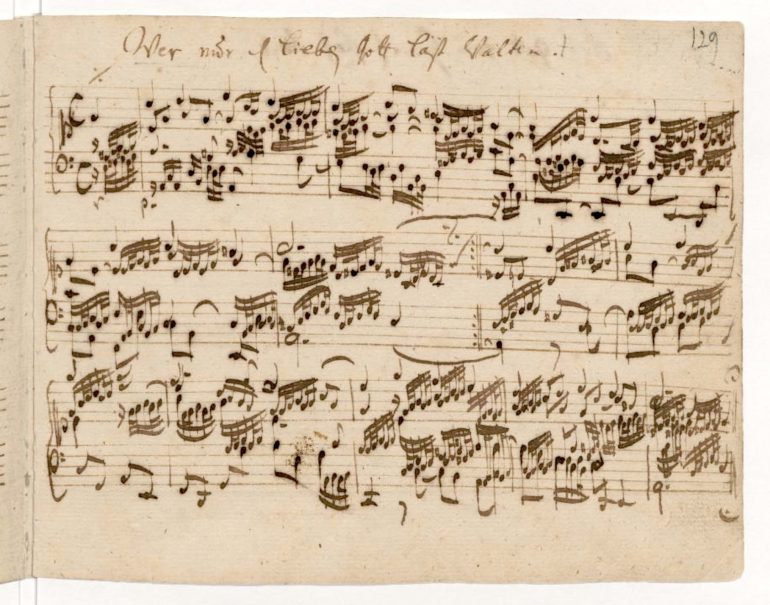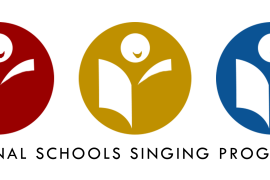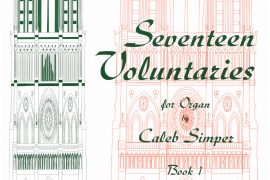In a kind of 18th-century to-do list, Bach put a title of a chorale melody at the top of each of 164 pages of manuscript for his Orgelbüchlein (Little Organ Book), and began completing a chorale prelude for each – as in the picture above.
For reasons only known to him, he completed just 46 settings. There are over a hundred pages that look like this, waiting for Bach’s inspiration:

Organist William Whitehead devised a project to complete Bach’s grand scheme. Over more than a decade William has commissioned contemporary composers such as John Rutter, Judith Bingham, Sir Stephen Hough, Sally Beamish, Louis Andriessen, Daniel Kidane, Roxanna Panufnik and Nico Muhly to fill in these 118 missing pieces and rise to the project’s central challenge: if Bach were alive today, how might he go about writing a short chorale prelude in the Orgelbüchlein style? And in so doing, he has created ‘a remarkable survey of compositional styles of our own era,’ comments Gramophone magazine.
The approximately 80 minutes of music that Bach left has been expanded to a collection that took about nine hours for the first complete performance. This September the Royal College of Organists presented the UK premiere of this complete Orgelbüchlein for the 21st century. ‘You will hear a kaleidoscope of styles – including minimalism, serialism, cubism, jazz-inspired sounds, reggae beat, wonky tango, English pastoral, virtuoso toccata – the list goes on!’ says William.
The original website, full of the history and background to the project, can be found here: http://obp-archive.co.uk/
A new website is being built, and material from the original site, including non-commissioned chorales completed by the Orgelbüchlein Community, is being transferred across. Find it here: https://orgelbuechlein.co.uk/
The Orgelbüchlein Project is being published by Edition Peters: Volumes 3 and 4 are now available.
A facsimile of the Orgelbüchlein manuscript (from the original in the Berlin State Library) can be downloaded from IMSLP.





